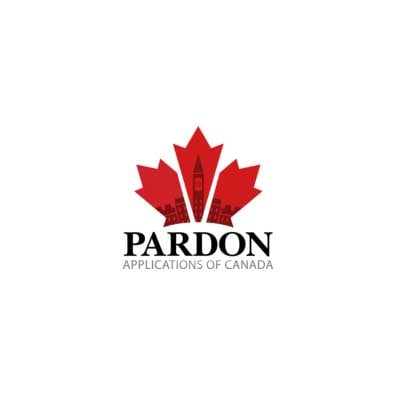
Konrad Bongard, freelance columnist for Pardon Applications of Canada, explores the decentralization of organized crime, and suggests that if the Canadian government seeks to seriously combat organized crime in the 21st century, it will have to considerably revise its law enforcement strategies.
Traditionally in American media, the Italian mafia has been portrayed as top-down, hierarchal organization, in which a single patriarch reigns supreme. However, according to Robert Saviano’s book Gomorrah, the Neapolitan mob (the main mob in Italy), contrary to popular opinion, is quite different.
There was a time when in order to buy drug lots, you had to purchase in large quantities. You also had to be introduced to clan members and affiliates, and provide information about where you’ll be peddling, and what the distribution will be like.
However, that time is no longer. The Di Lauro clan in Naples were the first to make a shift towards liberalization, selling in small lots so that anyone who wanted to pay for a vacation or a master’s degree could buy from them, and eliminated any kind of clan mediation. The result was a tremendous enlargement of their business — the Di Lauro clan used this money to set up companies, purchase global real estate, and forge connections with legitimate companies such as Versace and Armani. This lead to a shift in Italy away from criminal “diplomatic alliances” to “business committees”, operating on the principle of “total liberalism.”
While the Di Lauro clan were the first in Italy to embrace a liberal, decentralized model, the reorientation of organized crime groups is hardly limited to that nation.
In a report published by the RCMP, “The Changing Structure of Organized Crime Groups”, it is explained how most criminal organizations today utilize “networks structures.” In this model, rather than there being a single, centralized group united by familial or ethnic history, most global hubs of organized crimes encompass many groups, which average 20-50 members and who communicate with one another for purposes of facilitating business opportunities. The membership of these organizations is not necessarily consistent in terms of “age, sex, religion, income, nor attitudes”, and the hierarchy is relatively “flat”, with no single member being indispensable. Their salient advantage is that — unlike the hierarchal organizations of yore — they are remarkably flexible, and notoriously hard to prosecute.
Worth noting is that, for the most part, these new age criminal organizations have profited from globalization far more than the enforcement agencies charged with combating them — most of which are still confined within national boundaries. By taking advantage of changes in telecommunications and the proliferation of the Internet, as well as the liberalization of the movement of capital, organizations such as the Di Lauro have consistently evaded law enforcement. And far from being a mere device for evading detection, the Internet has also been a lucrative new source of profit. As the RCMP report notes, organized crime groups have been actively involved in “major fraud and theft, Internet-related stock frauds, cyber-extortion, [and] utilizing skilled hackers for the introduction and spread of computer viruses.”
“Their (new age criminal organizations) salient advantage is that — unlike the hierarchal organizations of yore — they are remarkably flexible, and notoriously hard to prosecute.”
Of course, there is a political parallel, too. As capitalism itself has become more decentralized — with the Ford Motor Companies and U.S. Steels of yesteryear giving way to an array of new companies that are created then liquidated, have no clear-cut national identity, and that have transient labour forces — so have its illegitimate counterparts (these illegitimate organizations also resemble capitalism in their partial abolition of ethnic and gender-based restrictions). This is true of organized crime groups including the Colombian drug cartels, Neapolitan mafia, and Russian-speaking mafia. It is also true of international political organizations such as Hamas, the Zapatistas, and the American Christian Patriot Movement, who supplanted the PLO, the Fidelistas, and the Klu Klux Clan respectively by adopting decentral, as opposed to centralizing, “Leninist” organization strategies. In the words of Anthony Bryan, “were it not for the illegitimate character of their actions, transnational criminals [and terrorists] could be lauded as pioneers and visionaries in the age of globalization.”
If the Canadian government seeks to seriously combat organized crime in the 21st century, it will have to considerably revise its law enforcement strategies by sharing information within traditionally isolated jurisdictions, modernizing the legal apparatus, cultivating a stronger online presence, and promoting public awareness of the changing character of organized crime.
One shouldn’t be too optimistic, however, as the RCMP’s report states –organized crime is likely only to continue to expand for the foreseeable future.
Konrad Bongard is a freelance columnist for Pardon Applications of Canada, the nationwide processing firm for Canadian Pardon (Record Suspension) & U.S. Entry Waiver applications. The opinions expressed are that of the author and do not necessarily reflect those of Pardon Applications of Canada. For a list of statistical references used in this article, or more information on Pardon Applications of Canada, call 866-383-9744 or email [email protected].
PAC’s Ongoing Service Commitment
Email [email protected]
Schedule a Call https://www.pardonapplications.ca/schedule-a-call/
My Account Dashboard https://dashboard.pardonapplications.ca/


